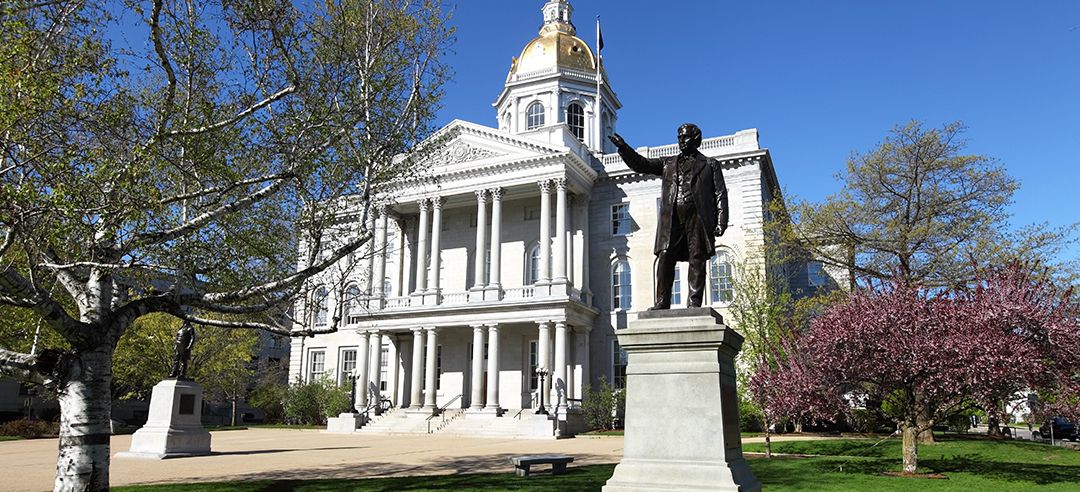Professional licensing: Everything everywhere all at once
By BOB QUINN
Chief Executive Officer
Discussions about professional licensing, and efforts to create a one-size-fits-all approach to the 40 licensed professions in the state, continue to echo throughout the halls of the New Hampshire State House. A number of bills, including language in the state budget, would alter or eliminate certain professional licenses.
House Bill 507 would impact all licensed professions, including real estate, by allowing individuals to skip any licensing requirements and start practicing.
The bill states that any unlicensed person engaged in providing services of any profession regulated by the office of professional licensure and certification may do so as long as they do not advertise or hold themselves out as being licensed.
Anyone not obtaining a license would need to “prominently disclose” the fact that he or she is not licensed. What that disclosure requirement requires is not spelled out in the bill.
NHAR testified against the legislation, and was the only professional licensed group who bothered to show up for a bill which most thought would be killed quickly. Instead, the House Executive Departments and Administration (ED&A) Committee deadlocked (10-10) on any recommendation, so the bill will go to the House floor without recommendation.
HB 507 would upend more than 60 years of real estate licensing law in the state, and would allow anyone to practice internal medicine, dentistry, optometry, electrical work and many other professions without a license. Even with the far-reaching ramifications of the bill, the House ED&A committee debated the bill for less than 10 minutes.
The odds are against this bill becoming law, but with so much discussion about eliminating licensing requirements at the State House, NHAR is not taking anything for granted.
Landlord restrictions: All Quiet on the Western Front
A large number of bills were introduced this year with the intent of restricting the right of property owners to increase rents they charge to tenants. Last week, those efforts were quieted by a bipartisan majority of the House of Representatives.
House Bill 112 would have required a property owner to notify all tenants 60 days prior to the sale of a multifamily home while mandating that tenants are given time to match the purchase price; HB 401 would have required a similar 60-day notice prior to evictions based on the owner’s intent to renovate the property; HB 469 would have mandated landlord accept tenants holding vouchers; and HB 567 would have put together a somewhat confusing process of notifying tenants of rent increases.
While NHAR recognized the good intentions behind each of these bills, they each ignored the true reason for rising rents and lack of rental options: municipalities are not allowing the construction of enough rental units. Limiting private property rights is simply a disincentive for landlords to acquire or maintain multi-family rentals while doing nothing for affordability or availability of rental units.
DES goes maverick on Shoreland Act, but Senate shows who's Top Gun
In 2020, the New Hampshire Supreme Court sided with property owners in Moultonborough over the NH Department of Environmental Services (NHDES) in a case where the owners were trying to rebuild a boathouse which had collapsed on their waterfront property.
DES argued that it had the right to deny the property owners the ability to rebuild the structure. However, the NH Supreme Court, after a three-year court battle, ruled that DES was incorrect in its interpretation and sided with the property owners.
Senate Bill 229 is, among other things, an attempt by NHDES to eliminate the statutory grounds which the Supreme Court used in its decision to protect property rights on the shoreline. NHDES did not mention the Supreme Court case, nor even the underlying issue, in its testimony.
NHAR raised concerns and asked the Senate to remove sections of the bill which would have eliminated the long-established right for owners to rebuild nonconforming structures on the shoreline. Last week, the Senate agreed with NHAR objections and amended the bill on the Senate floor to eliminate the problematic DES language.
Quote of the Week
“About 30 percent of homes bought in New Hampshire last year were purchased by people living out of state, compared to 25 to 26 percent in previous years. Definitely more out-of-state buyers, but overall a modest increase.”
–Heather McCann, Director of Housing Research, New Hampshire Housing Finance Authority.
For more information on the NHHFA housing needs report, click here
NHAR’s legislative chart can be found here.
For more information, contact New Hampshire Realtors CEO Bob Quinn: bob@nhar.com.

